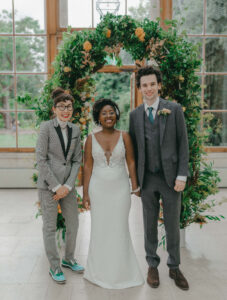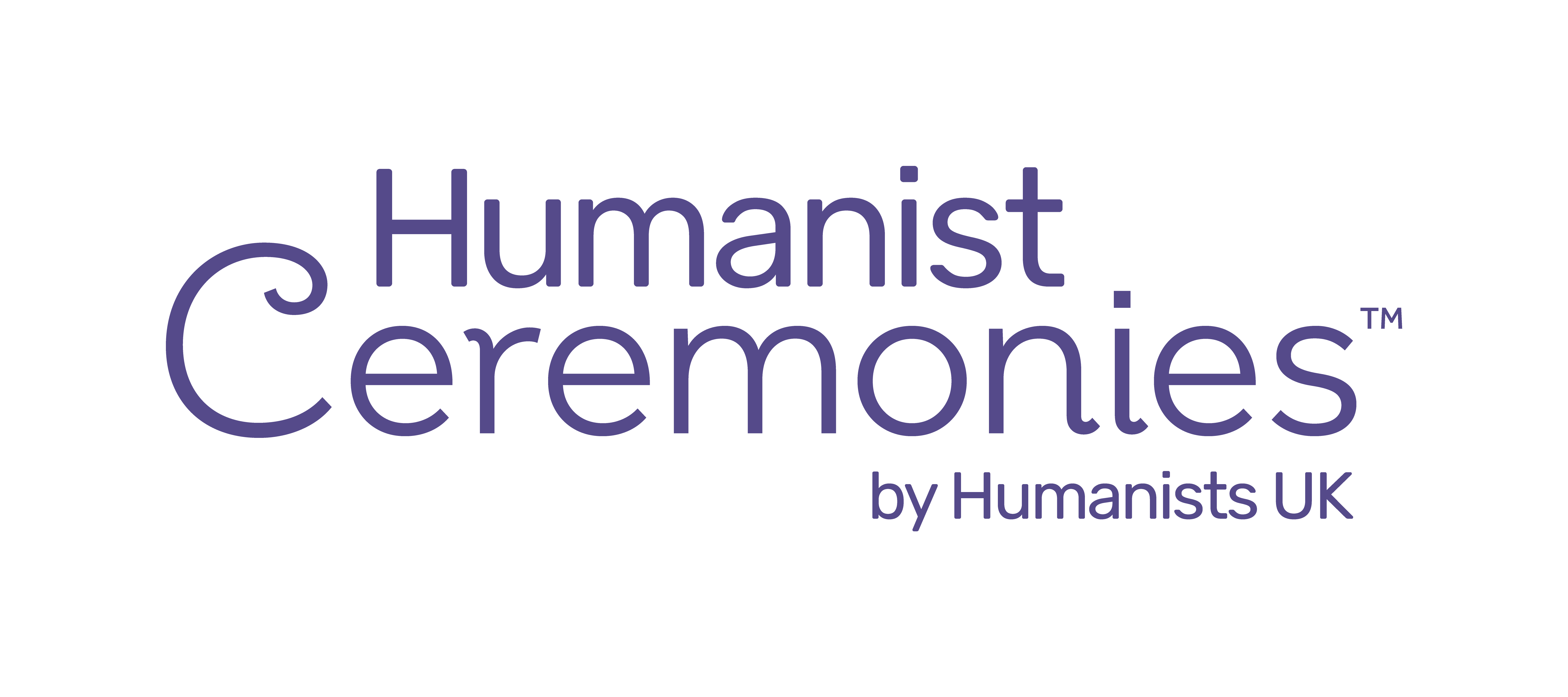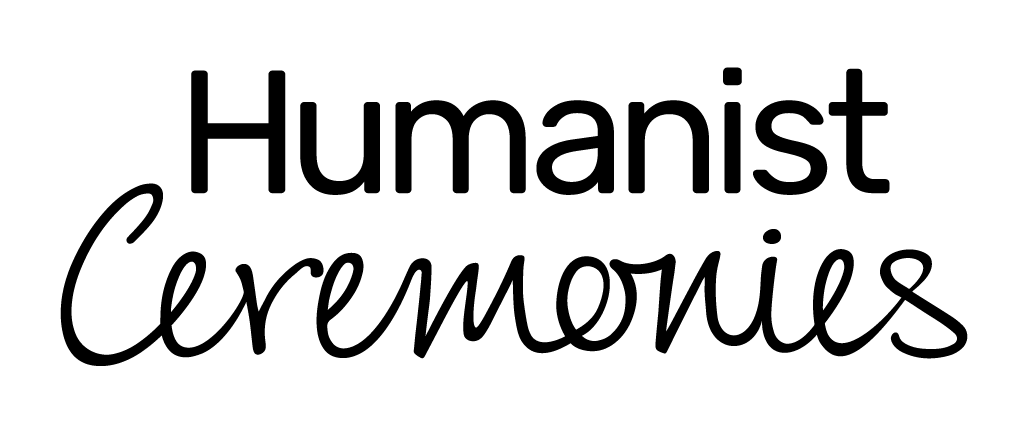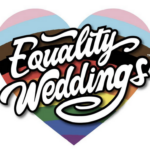Wedding FAQs

Rutendo and Ben’s wedding, photographed by Josephine Elvis
How long are Humanist Wedding ceremonies?
Usually a Humanist Wedding ceremony is between 25 minutes to 35 minutes. Attentions begin to wander and it seems that around 28 minutes is the ‘sweet spot’. The good news is that there aren’t any Rules so the length of the ceremony is really up to you.
We each come from different religious backgrounds and would like that to be acknowledged is that a problem for a Humanist Wedding?
Humanist Weddings can be a great solution for couples who have different religious backgrounds since they are inclusive and non-judgmental. I can work with you to find words, readings, ritual elements and other ways to acknowledge and celebrate your backgrounds.
We aren’t religious but we are moved by religious iconography, can the ceremony include visual elements related to religion?
Yes! Humanist ceremonies are non-religious but they aren’t anti-religion. Religious art and artefacts of the past have powerfully captured important truths of what it is to be human, what it is to experience loss or rapture. As a ‘visual person’ I’m happy to discuss how this could work with you both.
What does a Humanist Wedding Order of Service look like?
Unlike a religious ceremony there isn’t any standard order or elements that must be included. The Order of Service for a Humanist Wedding will be tailored to work for you as a couple. To give an idea though here is an example Order of Service of how a ceremony could be structured – but please remember it’s just here as a rough guide.
What is your usual timeline for working with couples?
There aren’t any hard and fast rules – but here is an example:
1 year before the date we have our initial meeting to discuss your plans in general and, assuming you want to proceed with me, you book me so that I can secure the date in my calendar. We stay in touch via email and phone with any updates or particular plans as things evolve.
Around 6 months before the date we have a deep dive meeting where we talk about everything – from how you met and your particular story, to the music that is most meaningful to you, the ‘cheesiest’ thing you ever did for each other, how friends and family might participate in your ceremony, and any rituals or symbolic acts you would like to include.
Over the following weeks and months I will send you drafts of the ceremony as it takes shape. We may also talk on the phone, via zoom or meet up in person to discuss its progress. I will also visit the venue if I don’t already know it to get a better idea of how things will work there.
At least 2 weeks before the day we should have a final signed off working script that you are happy with. Having said that there of course needs to be a little wiggle room for contingency.
The day before is a good day to meet in person (ideally at the venue) or online to run over the script and all details of stage management. This would usually include anyone else participating in the ceremony. Some couples prefer not to have a ‘rehearsal’ – they can be so useful though but lets see how things are looking and what suits you.
On the day itself I will arrive early and check everything with my fine eye for detail! I’ll meet everyone participating to make sure they are confident about what they are doing…. Then the ceremony itself will take place! It will be beautiful. You will be married (hurrah!) and go on to party and enjoy the rest of the day with your family and friends.
The next day I’ll email you the presentation copy (this is the version of the ceremony without all of the stage directions) for you to keep as a memento and share with any guests who were unable to attend.
What do you mean by ‘symbolic acts’?
There are various symbolic acts that can take place during a wedding, the most popular and simple being the exchange of rings. There are all kinds of other symbolic acts that can be incorporated from lighting candles to the warming of the rings, drinking from the loving cup, sand blending and hand fasting. We will discuss the various options and what, if any, of these would be meaningful and important for you both. You may want to adapt or even invent your own symbolic acts or you may decide to not have any included.
We would like to involve our children and celebrate them in some way during our wedding, can they be involved too?
Absolutely, its your wedding! Its so important that the ceremony genuinely captures all of the things that matter most to you. Involving children can be very beautiful and joyful. Even though I am meticulous in my planning, I quite enjoy the little bit of anarchy and disruption that children can introduce to proceedings!
What happens if you get Covid a few days before the ceremony?!
Firstly, I will do everything I can to make sure that I keep clear of viruses! However, if I were to become ill and unable to deliver the ceremony there is an effective Plan B. I always write detailed stage directions in my working scripts – this helps me to avoid any mishaps and deliver with confidence, but it also means that my working scripts can be taken over by someone else should that be required. I am a member of a network of trained (and talented) Humanist UK celebrants, and at times like these we help each other out.
So, I would first be in touch with you to explain the situation, and see if you are happy for me to find an alternative celebrant from my network. I would provide them with a detailed handover, including the full script with stage directions and details of venue, people to meet, what to bring with them and any other specific instructions. They would then act as your celebrant on the day.
Please be assured though that such occasions, when celebrants have to substitute for each other, are very rare.
Do you have public liability insurance?
Yes indeed. I’m proud to be trained, and accredited by Humanists UK, and as a Humanists UK celebrant I am backed by their professional public liability insurance as well as being regularly peer reviewed and having annual Continuous Professional Development training.
What is the legal status of a Humanist Wedding Ceremony?
Humanist marriages are now legally recognised in Scotland, Northern Ireland, Jersey, and Guernsey, as well as in neighbouring countries like the Republic of Ireland. BUT in England, while Humanist weddings are no less meaningful and beautiful, they are not (yet) recognised as legal marriages.
Humanists UK have been campaigning for this legal recognition in England for some years now and we are hopeful that things may soon change. For now couples in England usually book a civil wedding to either coincide with or take place just before their Humanist Wedding. I am happy to discuss this in more detail when we meet.
What does the Equality Weddings symbol on your website stand for?
LGBTQ Equality Weddings and The Career Queer published an excellent Guide to Inclusivity for Wedding, Ceremony, and Event Professionals in 2021, updated in 2023. This describes best practice and recommends a set of core values that I am happy to apply in my role as celebrant. You can read more about it here.



